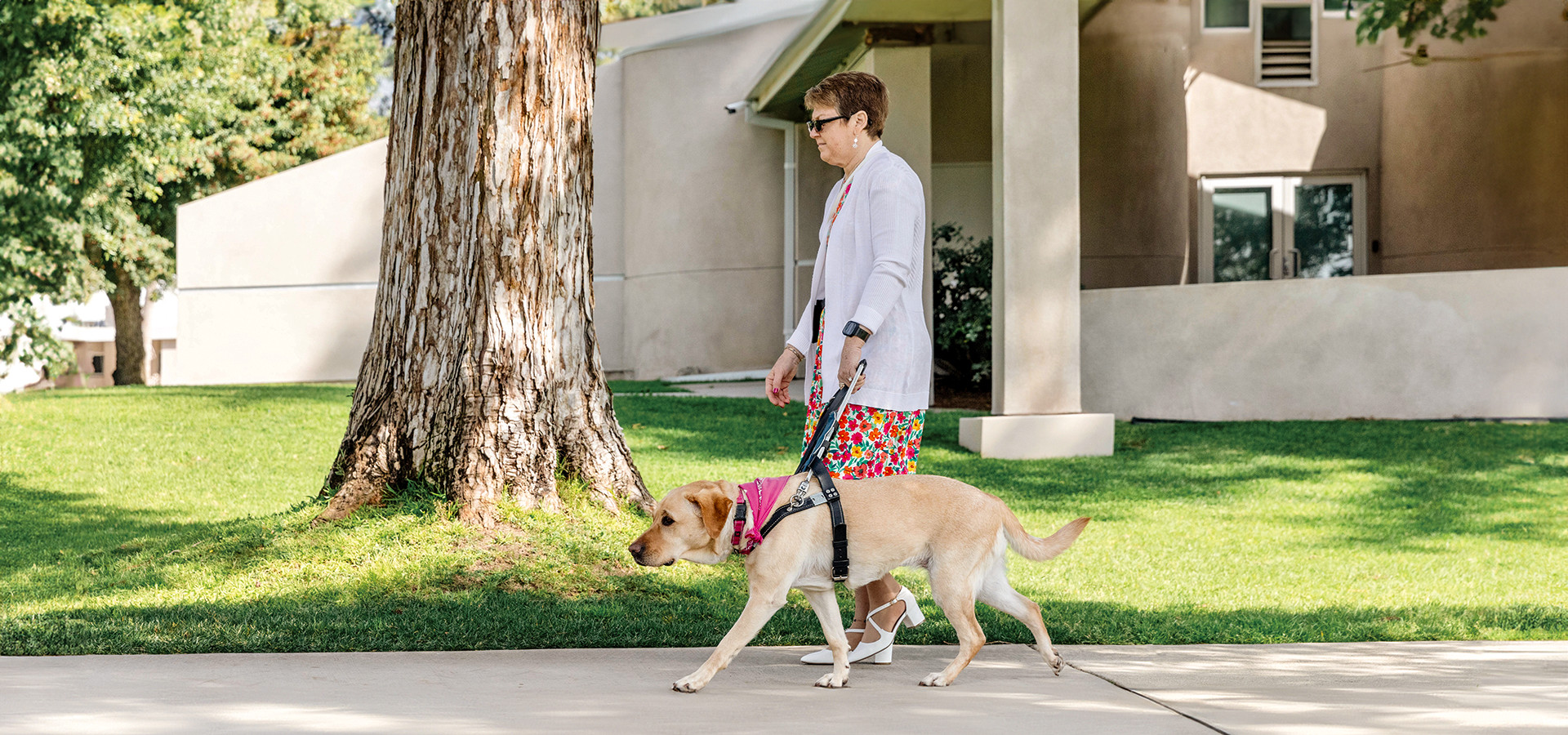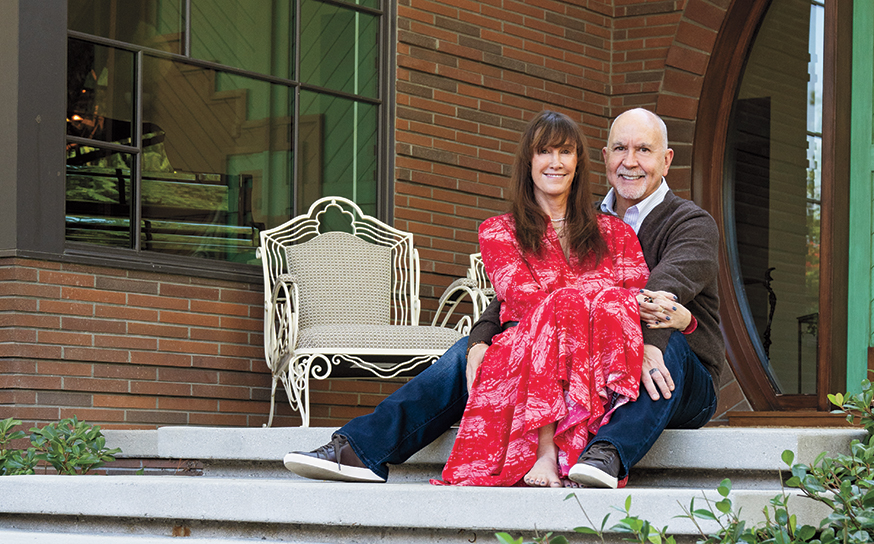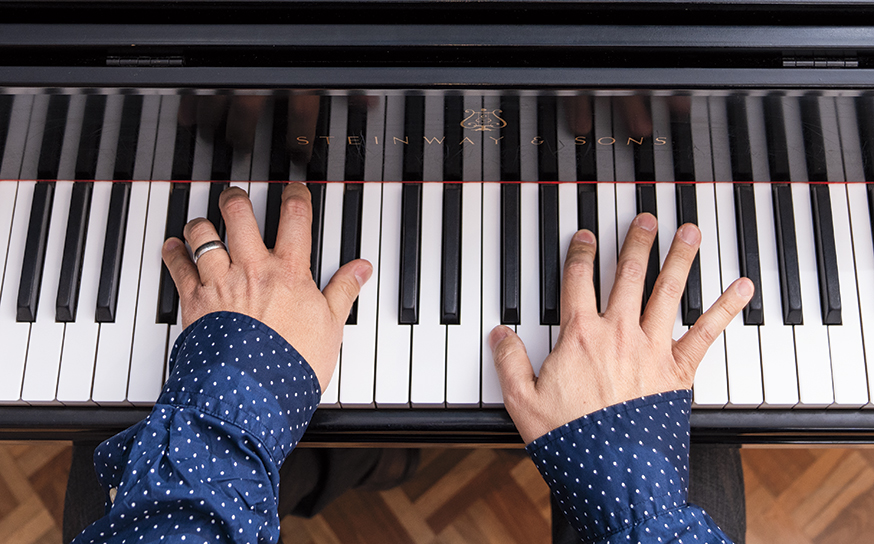Guide Dogs of America in Sylmar is Enabling People to Lead Active Lives
One woman’s inspiring story.
-
CategoryPeople
-
Written byDiane Haithman
-
Photographed byCara Harman
In 2009, Teresa Blevins was a busy woman, a 70-words-per-minute typist with a plum job as administrative assistant and human resources liaison at a U.S. Army airfield in Alabama. Then, overnight, everything changed.
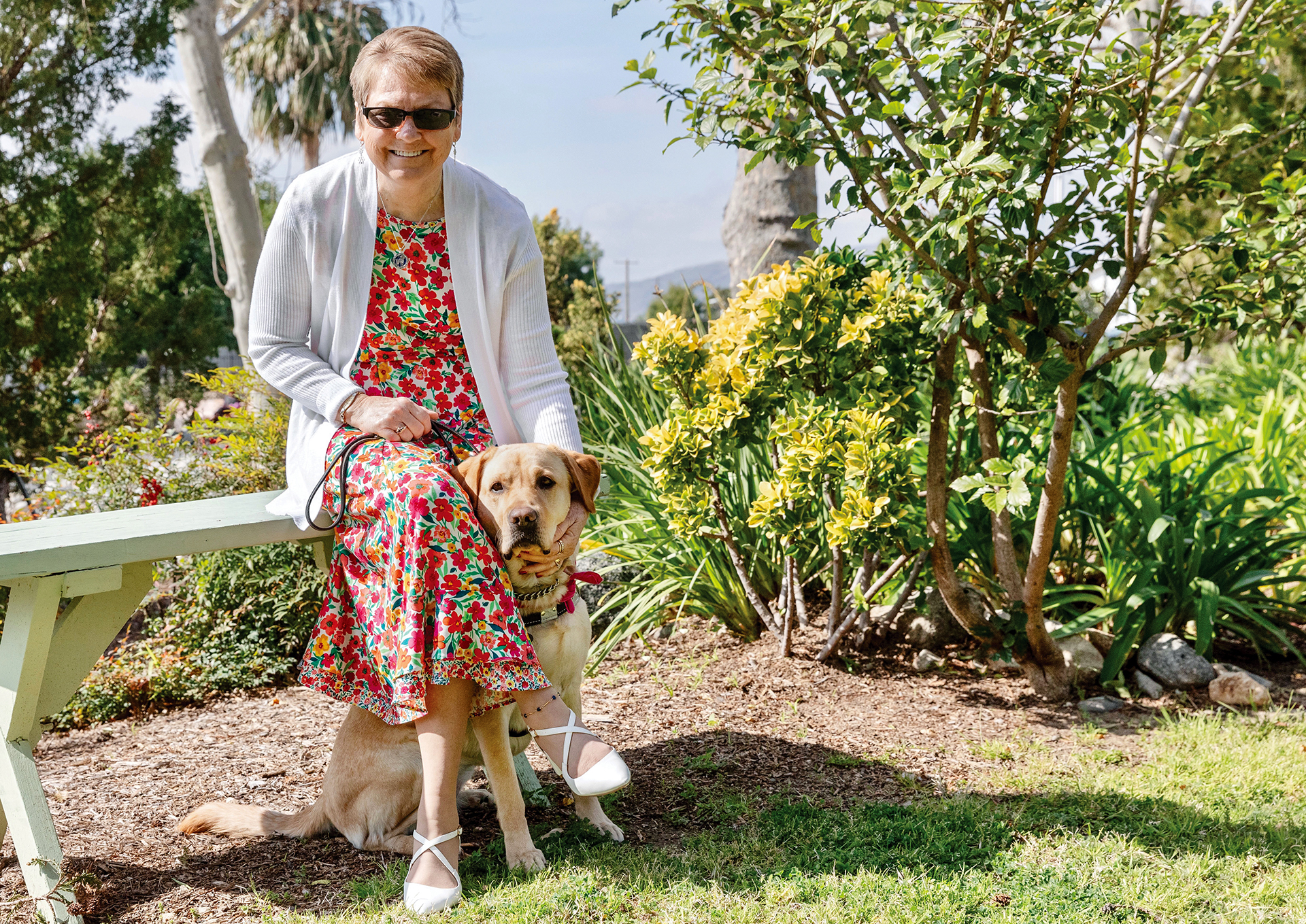
Teresa and Delilah on the Sylmar campus of Guide Dogs of America.
“I woke up and all I saw was red,” she says.
Teresa, now 63, suddenly found herself in a different, more perilous world. Diabetic retinopathy had struck, causing bleeding in the blood vessels behind the eyes, leaving her virtually blind. After a frustrating year of multiple surgeries, she was able to regain only about 15% of her vision in one eye—and then only in optimal lighting conditions.
“The doctor stated there was nothing else to be done,” recalls her husband, Tony, who had spent the year rearranging furniture and even food on her plate, trying to create patterns she could learn, and sight-guiding Teresa through their home and neighborhood. “But Teresa, without a pause, said, ‘Sure there is.’”
As luck would have it, Teresa’s solution was right at her fingertips. For the previous 10 years, she had been a volunteer fundraiser for Guide Dogs of America Tender Loving Canines, headquartered in Sylmar, which trains dogs for the visually impaired.
Instead of waiting for a medical miracle or closing herself off from the seeing world, Teresa applied for a guide dog through the nonprofit.
In Teresa’s version of the events of 2009–10, it was Tony who made the call. “My husband said, ‘So I guess you need to fill out an application.’ I said for what? And he said, ‘A guide dog.’
“I’d been doing all these fundraisers and telling everybody about Guide Dogs of America, but never thought I would be putting in an application for one. I started crying.”
Indeed, a few teardrops leaked out from behind her glasses during a recent sit-down chat at the 7 1/2-acre Sylmar facility, which raises and trains these special dogs. Her most recent companion, a 4-year-old yellow Labrador named Delilah, lay patiently at her feet. “I’m sorry—when I got to talking, it brought things back.”
However, it only took seconds for Teresa to regain her trademark positivity in describing what came next. “I’m not the kind of person that sits back. I can’t sit back and I can’t stay at home. I’m just not that type of person.”
Tony, we should mention, was also connected to the organization. He served as the president’s assistant for the International Association of Machinists and Aerospace Workers; the union founded Guide Dogs of America in 1948. In 2020, Guide Dogs of America merged with Tender Loving Canine Assistance Dogs (TLC), which provides skilled service dogs for veterans with post-traumatic stress disorder and for people with autism, as well as facility dogs that are deployed to schools, hospitals and other institutions.
Since the merger, dogs that don’t make the cut to be guides for the blind can switch paths to become service canines. The program also breeds specifically for service dogs.
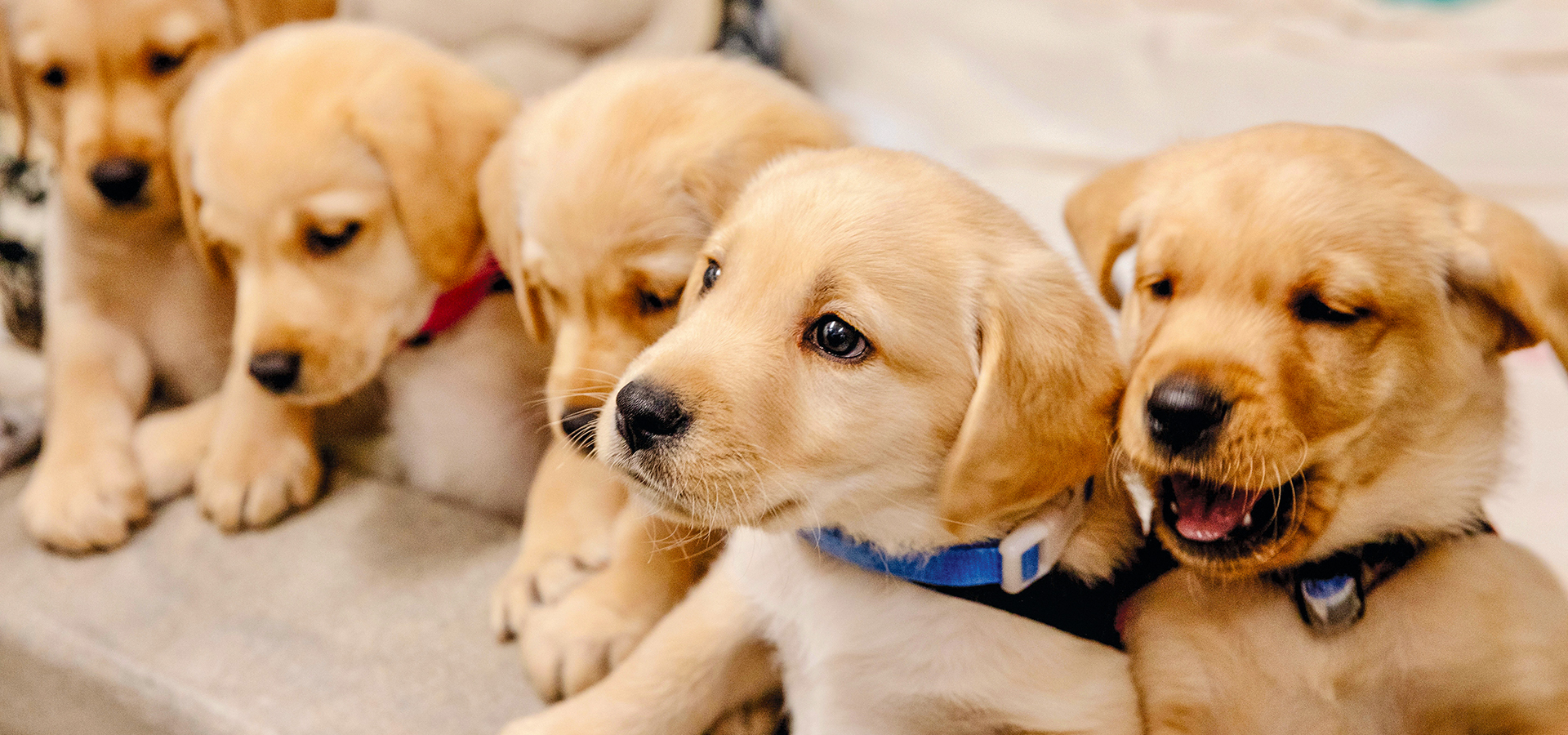
Above At 8 weeks old the puppies are placed with a volunteer, staying until they are 16 to 18 months old. Then they return to the Sylmar campus to begin formal training to be a guide or service dog.
•••
Recently, the Blevinses have become even more involved. The couple has relocated from Alabama, and Tony has taken a job as assistant director of GDA TLC. Teresa has officially joined the organization as a full-time volunteer. Her duties include involvement in the puppy program, which places new pups born at the facility in private homes for up to 18 months. During this period the dogs gain socialization and basic behavior skills before returning to the facility to train as guide or service dogs.
But back to 2010: Through her experience as a volunteer, Teresa knew that qualifying for a canine companion would be more complicated than just filling out an application. Acceptance into GDA’s program is not automatic. First, she would have to go through mobility training with a cane to demonstrate her ability to train with a guide dog, which she did via the Alabama Institute for the Deaf and Blind.
Even after successfully completing the mobility training and meeting rigorous qualification requirements, it took a year for a spot to open for Teresa in GDA’s residential program, where she would work with her first guide dog. Taking steps toward independence began when the nonprofit arranged for Teresa to fly solo to Los Angeles. The trip turned out to be less stressful than Teresa anticipated. She was sight-guided by friendly airport staff onto the plane and to the baggage area, where she was met by a GDA representative.
“When I came to Guide Dogs, it was like walking in to a second family.” Teresa says. “They take you in here. They treat you just like family.”
The guide dogs themselves become family members too. “For the spouse of someone with a guide dog, you must always tell yourself this is not a pet,” Tony says. “I had to adjust to backing off as the sight guide. This was Delilah’s job now. I had to allow them to make mistakes together.”
A guide dog brings freedom to everyone in the blind person’s life, says Zack Gittlen, director of development and marketing for Guide Dogs of America Tender Loving Canines. “Teresa is a perfect example of the independence that our dogs bring to folks. It’s not just about moving easier. It’s about going places on your own.”
And there’s no place Teresa and Delilah don’t go—with a driver, of course. Aside from work, Teresa enjoys traveling with Tony and cooking Southern specialties—and points out that she remains an excellent bowler.
Teresa continues to work on behalf of GDA at conventions and fundraisers, but now she can call on personal experience. “Now I’m actually going out and doing public speaking on what happened to me, what happened overnight, what can happen to anyone,” she says.
She adds with a smile: “There’s nothing you can’t do if you get a guide dog.”
For more on GDA TLC’s programs, come to the open house on June 8 or visit guidedogsofamerica.org.
Join the Valley Community






